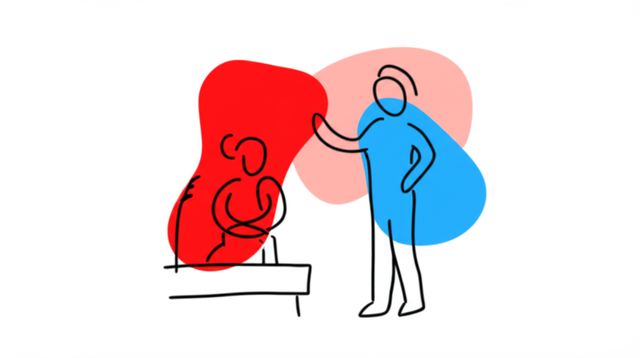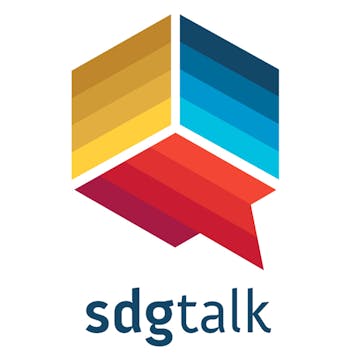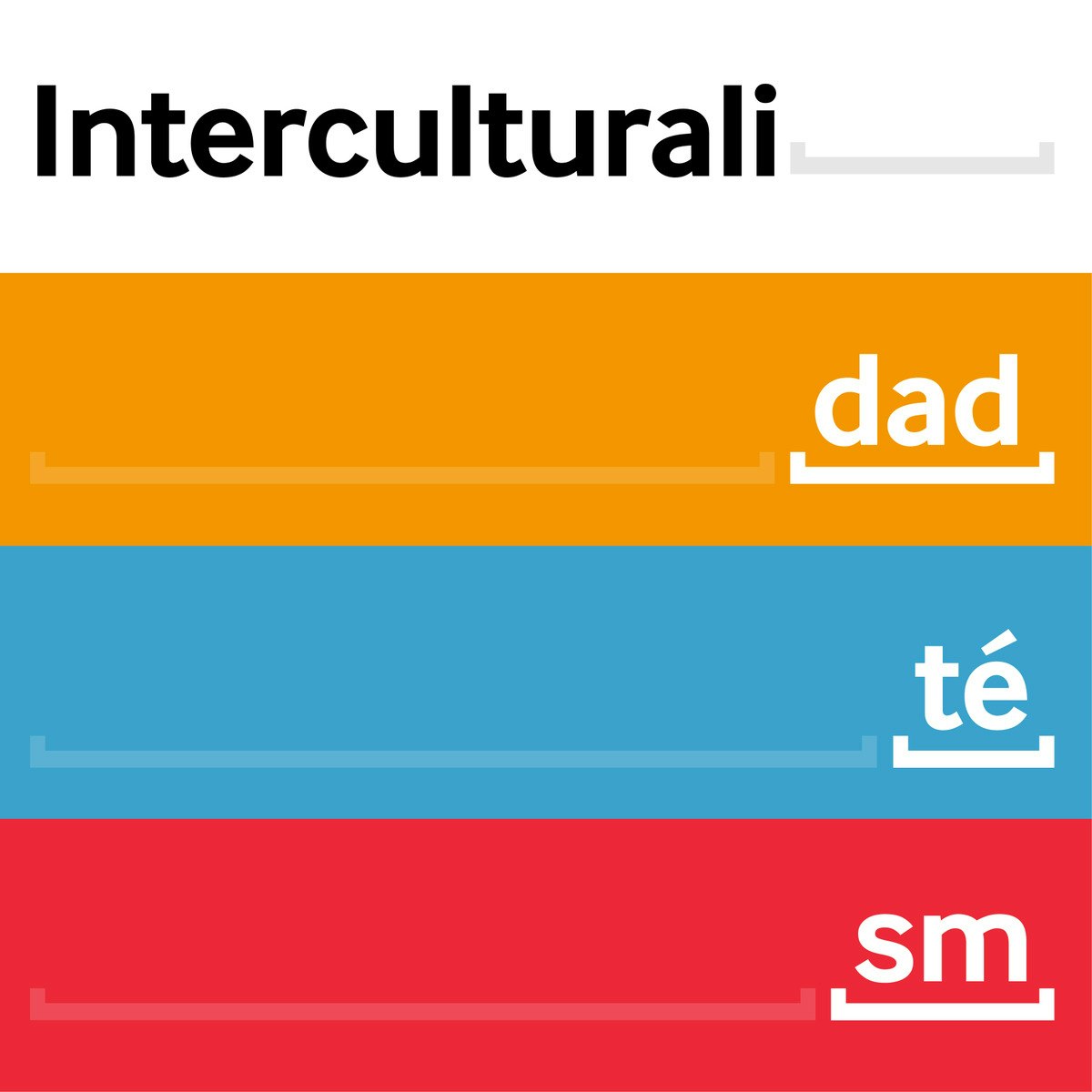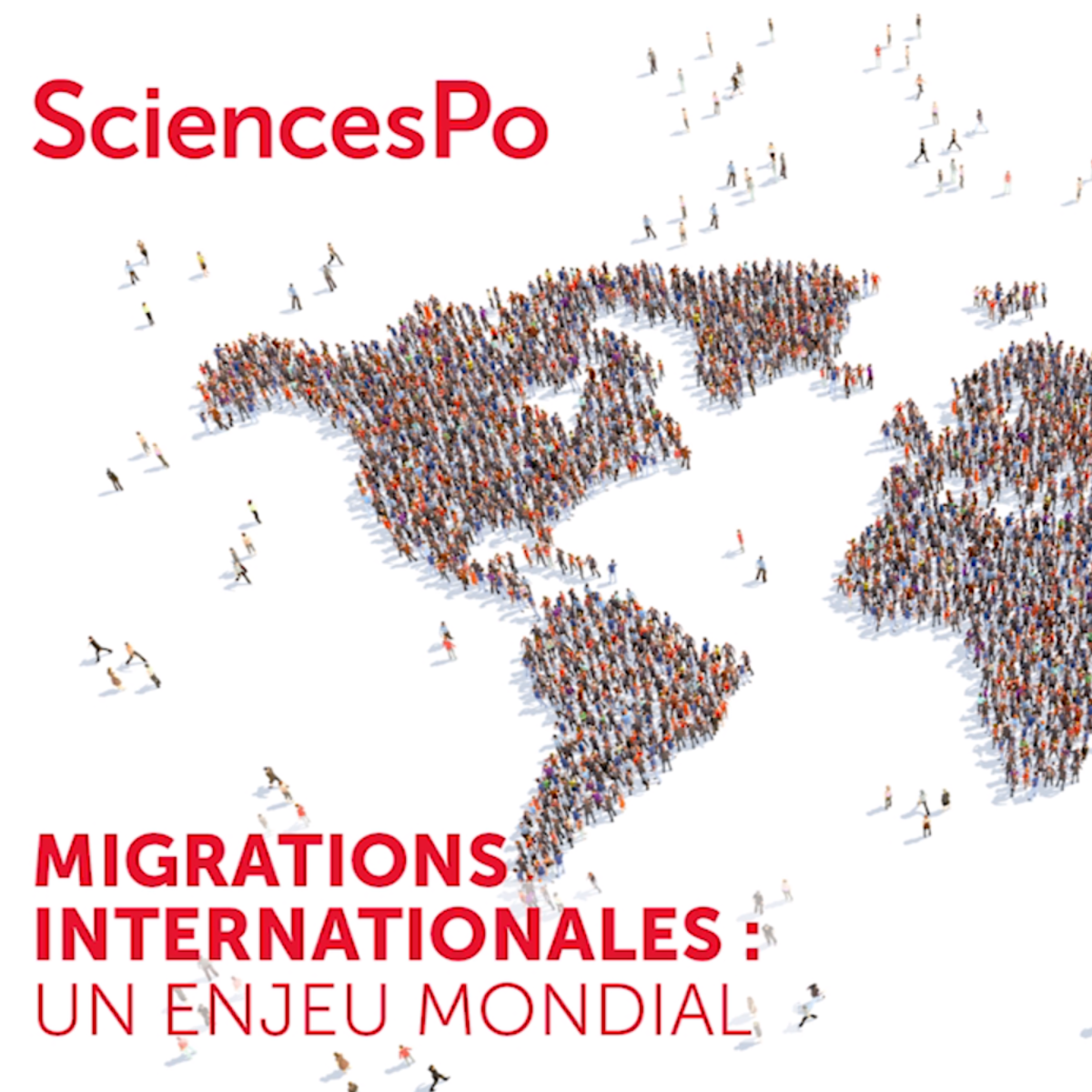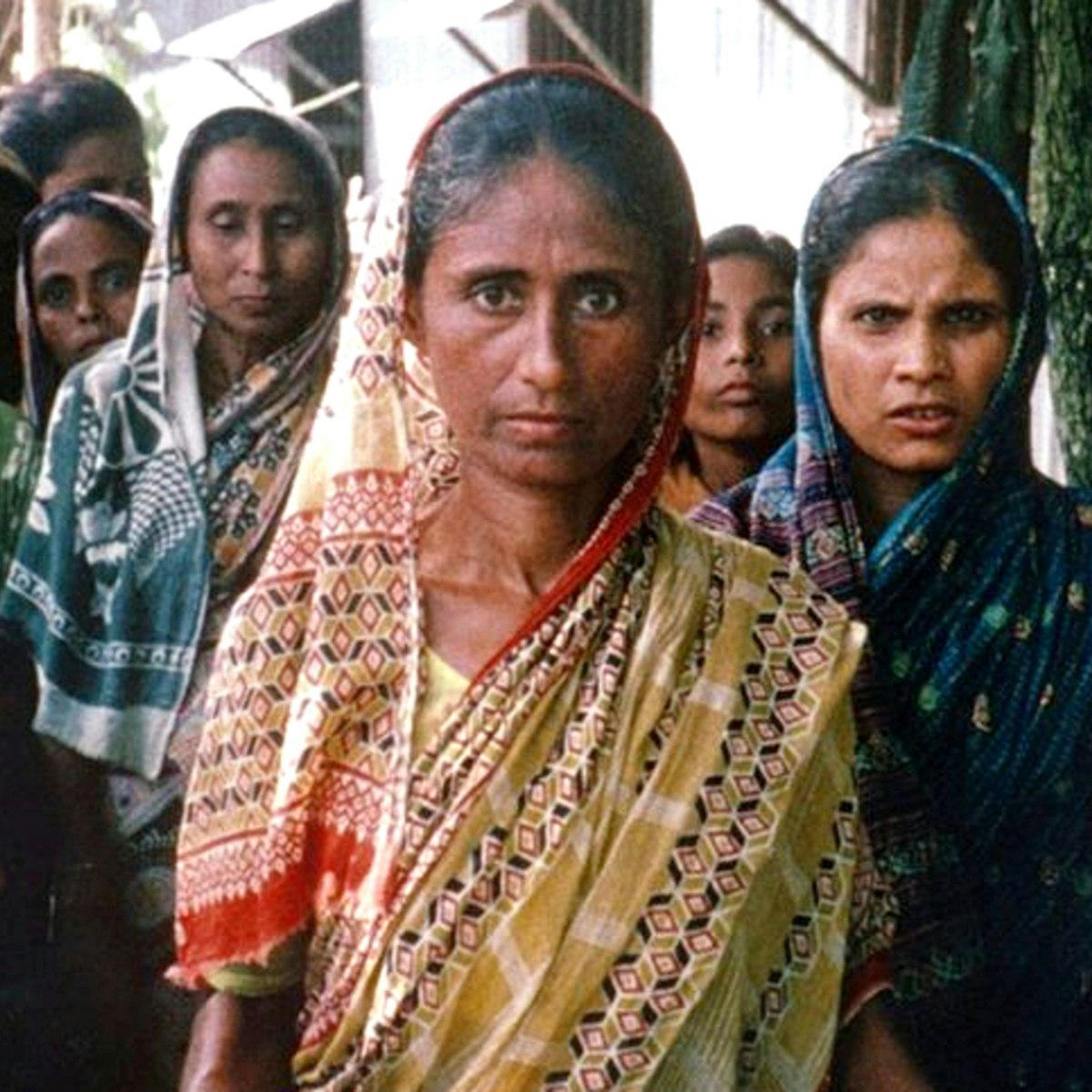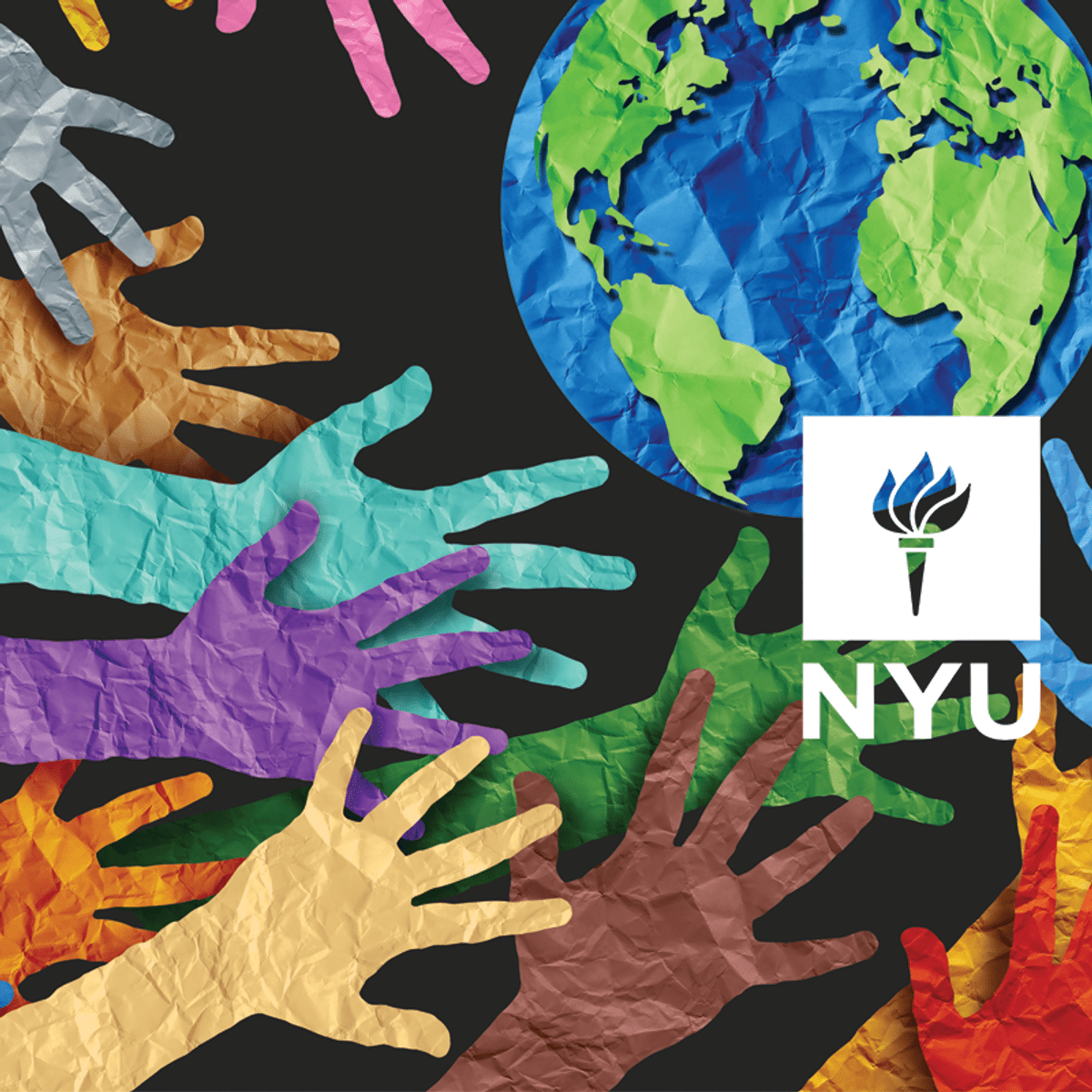Human Rights Activist
Comprehensive Guide to Becoming a Human Rights Activist
Human rights activism involves championing the fundamental rights and dignities that every individual is entitled to, often by scrutinizing and challenging governmental policies and societal norms. This field is not solely about protest; it encompasses intelligent debate, policy analysis, and raising public awareness. Individuals in this career work to ensure that development and progress do not come at the undue cost of any segment of society, particularly the vulnerable and marginalized. The work of a human rights activist can be deeply engaging, offering the opportunity to contribute to significant societal changes and uphold justice. It often involves direct interaction with diverse communities, providing a platform to make a tangible difference in people's lives.
The pursuit of human rights is a dynamic and ever-relevant field. Activists inform and energize civil society, working across various organizational types and coming from diverse professional backgrounds. The thrill of advocating for systemic change, coupled with the reward of empowering communities and individuals, makes this career path a compelling choice for those passionate about fairness and equality.
Introduction to Human Rights Activism
This section provides an overview of human rights activism, its historical roots, and its global significance. Understanding these foundational aspects is crucial for anyone considering a career dedicated to advocating for the rights and dignity of all people.
Defining Human Rights Activism and Its Core Principles
Human rights activism is the dedicated effort to promote and protect the inherent rights and fundamental freedoms of all individuals. At its core, this work is about reacting to injustice, abusive treatment, violence, or discrimination and striving to correct these wrongs. Activists champion the norms that allow people to lead dignified lives, which are typically protected by law. This involves more than just public protest; it includes engaging in thoughtful debates with governments about their decisions and serving as a constructive pressure group.
The principles underpinning human rights activism are rooted in the idea of universal rights – that all human beings are born free and equal in dignity and rights. Key documents like the Universal Declaration of Human Rights (UDHR) outline these inalienable rights, which include civil, political, economic, social, and cultural rights. Activists work to ensure these rights are upheld for everyone, irrespective of race, sex, nationality, ethnicity, language, religion, or any other status. Their work is driven by a belief in a world where human rights are respected for all and a desire to make that vision a reality.
These foundational courses offer an introduction to the core tenets of human rights and the global efforts to uphold them. They explore the evolution of human rights, key documents, and the roles of various actors in promoting and protecting these rights.
These books provide comprehensive overviews of international human rights law, theory, and practice, serving as essential reading for anyone looking to understand the field.
Historical Context and Key Milestones in Human Rights Movements
The history of human rights activism is a long and evolving narrative of individuals and groups resisting oppression and fighting for justice. Movements against slavery, colonialism, patriarchy, and segregation are all part of this rich history. While the term "human rights defender" gained prominence after the UN's 1998 Declaration on Human Rights Defenders, the practice of advocating for human dignity is ancient.
Key milestones include the Enlightenment, which championed ideas of natural rights, and the abolitionist movements of the 18th and 19th centuries. The 20th century witnessed the horrors of two World Wars, which spurred the creation of the United Nations and the landmark Universal Declaration of Human Rights in 1948. This document, for the first time, set out fundamental human rights to be universally protected.
Subsequent decades saw numerous movements that significantly advanced human rights, such as the Civil Rights Movement in the United States, the anti-apartheid struggle in South Africa, and feminist movements globally. Each of these, and countless others, contributed to shaping our understanding and application of human rights principles. Activists in these movements utilized various strategies, from peaceful protests and civil disobedience to legal challenges and international advocacy, leaving an indelible mark on the global human rights landscape.
To understand the historical underpinnings and evolution of human rights, these courses offer valuable insights.
Delving into the history and philosophical foundations of human rights can provide a deeper appreciation for the ongoing struggle for justice.
Global Impact of Human Rights Activism on Policy and Society
Human rights activism has had a profound and far-reaching impact on policies and societies worldwide. Through persistent advocacy, research, and mobilization, activists have been instrumental in shaping international and national laws, holding governments accountable, and fostering cultures of respect for human dignity. The work of human rights defenders often leads to tangible changes, such as the release of political prisoners, the establishment of legal protections for marginalized groups, and the prosecution of perpetrators of human rights violations.
Activists play a crucial role in raising public awareness about injustices, thereby mobilizing public opinion and creating pressure for change. They contribute to the development of international human rights standards and monitor their implementation. For example, campaigns by organizations like Amnesty International and Human Rights Watch have brought global attention to human rights abuses, leading to international condemnation and, in some cases, policy shifts by governments.
Furthermore, human rights activism has empowered countless individuals and communities to claim their rights and participate in decision-making processes that affect their lives. Grassroots movements, often spearheaded by local activists, have been pivotal in addressing issues such as environmental degradation, land rights, gender inequality, and discrimination. While challenges remain, the enduring efforts of human rights activists continue to shape a more just and equitable world. The Office of the United Nations High Commissioner for Human Rights (OHCHR) actively supports and provides information on the vital role of human rights defenders globally.
These courses explore the ways in which human rights principles are applied in various global contexts and the impact of activism on policy.
Core Skills and Competencies
Becoming an effective human rights activist requires a diverse set of skills and competencies. This section outlines some of the most crucial abilities, from persuasive communication to in-depth research, that are essential for navigating the complexities of this field and driving meaningful change.
Advocacy and Communication Skills
Strong advocacy and communication skills are paramount for human rights activists. A significant part of the job involves championing a cause, whether through verbal persuasion or compelling written arguments. Activists must be able to clearly and coherently articulate complex issues to diverse audiences, including policymakers, the public, and international bodies. This includes crafting persuasive narratives, delivering impactful presentations, and engaging in effective lobbying.
Effective communication also involves active listening and the ability to build rapport with individuals from various backgrounds, especially those whose rights have been violated. Public speaking, media engagement, and the ability to mobilize supporters through compelling storytelling are also vital. Whether organizing rallies, drafting reports, or negotiating with officials, the power of clear and convincing communication cannot be overstated in the pursuit of human rights.
These courses help develop the communication and advocacy skills critical for human rights work.
These books delve into strategies for effective advocacy and leadership, offering valuable insights for aspiring activists.
Legal and Policy Analysis
A strong capacity for legal and policy analysis is another cornerstone of effective human rights activism. Activists often need to scrutinize governmental policies and laws, identifying loopholes or discriminatory aspects. This requires a keen eye for detail and the ability to look beyond simplistic presentations of information. Understanding international human rights law, national legal frameworks, and the mechanisms for their enforcement is crucial.
Activists may be involved in documenting human rights violations, which often requires careful legal analysis to build strong cases for advocacy or litigation. They might also contribute to drafting alternative policies or legislative reforms that better protect human rights. Therefore, the ability to interpret legal texts, analyze policy implications, and understand the workings of judicial and quasi-judicial bodies is a significant asset in this field. This analytical rigor helps ensure that advocacy efforts are well-founded and strategically targeted.
These courses provide foundational knowledge in international human rights law and policy analysis.
Understanding the legal frameworks governing human rights is essential, and these books offer in-depth exploration of the subject.
Cultural Sensitivity and Conflict Resolution
Cultural sensitivity is an indispensable skill for human rights activists, particularly as their work often involves direct fieldwork in diverse communities, sometimes far from home. It means approaching people from varied cultural backgrounds with an accommodating and understanding mindset when addressing their problems. Activists must be aware of and respect cultural norms and differences to build trust and effectively collaborate with local populations. This includes understanding how cultural contexts can influence perceptions of rights and the most effective ways to advocate for them.
Coupled with cultural sensitivity is the ability to navigate and resolve conflicts. Human rights work can inherently involve contentious issues and opposing viewpoints. Skills in conflict resolution, mediation, and negotiation are valuable for de-escalating tensions, fostering dialogue, and finding common ground. This allows activists to work constructively even in challenging and polarized environments.
Developing intercultural competencies and understanding conflict dynamics are key areas covered in these courses.
These books offer perspectives on dignity, empathy, and understanding diverse experiences, which are crucial for culturally sensitive activism.
Research and Documentation Techniques
Meticulous research and documentation are fundamental to credible human rights activism. Activists often engage in evaluating human rights developments and policies, which necessitates thorough investigation and information gathering. This can involve collecting testimonies from victims and witnesses, analyzing official documents, monitoring trials, and conducting field research, sometimes in challenging or dangerous environments.
The ability to systematically document findings in reports, articles, and case files is crucial for raising awareness, supporting advocacy efforts, and pursuing legal remedies. Precision, attention to detail, and a commitment to factual accuracy are paramount. Human rights researchers collaborate with various entities, and their reports often serve as vital references for policy changes and legal actions. Therefore, proficiency in various research methodologies, data analysis, and ethical considerations in research are key competencies.
These courses introduce methodologies and practical aspects of research in the context of human rights.
Effective research underpins impactful activism. These texts provide insights into methodologies and the importance of evidence-based advocacy.
Educational Pathways
While passion and dedication are vital, a solid educational foundation can significantly enhance an activist's effectiveness. This section explores various educational routes, from university degrees to specialized training programs, that can equip aspiring human rights defenders with the necessary knowledge and credentials. Many human rights roles benefit from specialized knowledge in areas like legal frameworks, policy analysis, research methodologies, or digital campaigning.
Relevant Undergraduate Degrees
A variety of undergraduate degrees can provide a strong foundation for a career in human rights activism. Commonly pursued fields include Political Science, International Relations, Law, Sociology, and Journalism. These disciplines offer insights into political systems, international affairs, legal frameworks, societal structures, and communication strategies, all of which are highly relevant to human rights work. For instance, a degree in Political Science can develop an understanding of governance and policy-making, while International Relations offers a global perspective on human rights issues.
While a liberal arts background is often recommended, there's no strict requirement, and students from any stream can pursue this path. Some universities even offer undergraduate degrees specifically in Human Rights. Regardless of the specific major, it's beneficial to choose coursework that hones critical thinking, research, writing, and analytical skills. Taking advantage of classes and resources available during undergraduate studies can build a robust knowledge base in human rights and activism.
These introductory courses can complement an undergraduate education by providing specific knowledge in human rights.
Broadening one's understanding of social justice and oppression is crucial for aspiring activists.
Graduate Programs and Certifications in Human Rights
For those seeking specialized knowledge and advanced roles, pursuing graduate programs or certifications in human rights can be highly beneficial. A Master's degree is often required for specialized fields such as human rights law, human rights advocacy/policy, public policy/social policy, public administration, or peace and conflict studies. These programs provide in-depth understanding of theoretical frameworks, research methodologies, and practical skills relevant to human rights work. Many universities and specialized institutions offer Master's degrees in Human Rights, International Law with a human rights specialization, Development Studies, or Gender Studies.
Certifications can also enhance credentials and provide focused expertise in specific areas of human rights. These may be offered by universities, NGOs, or intergovernmental organizations. For example, certificate courses in human rights, ranging from six months to two years, are available. Such programs often cater to working professionals or those seeking to transition into the field. The specific graduate degree or certification will often depend on the type of organization one wishes to work with and the specific area of human rights they aim to focus on.
Advanced courses like these delve into specific areas of human rights and are suitable for those pursuing or holding graduate-level qualifications.
These texts are often central to graduate-level study in human rights, offering profound theoretical and practical insights.
Workshops and Training Programs by NGOs
Non-governmental organizations (NGOs) play a significant role in providing practical training and workshops for aspiring and established human rights activists. These programs are often designed to equip participants with specific skills needed for effective advocacy, campaigning, research, and documentation. Organizations like Amnesty International offer a wide variety of human rights courses and educational resources, many of which are available online and free of charge. These can range from short introductory modules to more extensive training sessions.
The Global Campus of Human Rights, for example, provides continuing professional development programs and short courses designed for practitioners who wish to update their skills or engage in in-depth learning. They place special emphasis on training human rights defenders. Such workshops often focus on contemporary challenges, skill-building seminars led by academics and experts, and practical tools for human rights work. Participation in these programs can provide valuable hands-on experience, networking opportunities, and insights into the realities of activism.
Many organizations offer free online courses and resources that can be invaluable for skill development.
Engaging with online courses is an excellent way to build foundational knowledge and specialized skills. OpenCourser offers a vast library of courses across various subjects, including Social Sciences and Legal Studies. Learners can use the "Save to list" feature on OpenCourser to shortlist courses and return to them later.
Career Progression and Opportunities
A career in human rights activism offers diverse pathways and opportunities for growth. From entry-level positions in grassroots organizations to leadership roles in international bodies, activists can find numerous avenues to contribute their skills and passion. The field is dynamic, with specializations emerging in response to evolving global challenges.
Entry-Level Roles in NGOs and International Organizations
For those starting their careers, numerous entry-level opportunities exist within non-governmental organizations (NGOs) and international organizations. These roles can provide invaluable practical experience and a deeper understanding of human rights issues on the ground. Common entry-level positions might include program assistants, research assistants, advocacy support officers, or communications interns.
Internships are highly recommended, even during undergraduate studies, as they offer practical insights and can be a stepping stone to permanent employment. Many organizations, both local and international, offer internships that allow individuals to contribute to ongoing projects, learn from experienced activists, and build professional networks. These initial roles often involve supporting senior staff in research, organizing events, drafting communications, and assisting with administrative tasks, providing a comprehensive introduction to the workings of human rights organizations.
These courses cover broad human rights themes and can be beneficial for those seeking entry-level positions by providing a solid understanding of key issues.
Building a strong foundation in human rights principles and practices is key for early-career professionals.
Mid-Career Opportunities in Policy-Making and Leadership
As human rights activists gain experience and expertise, opportunities for mid-career advancement in policy-making and leadership roles become available. These positions often involve greater responsibility, such as managing programs, leading advocacy campaigns, shaping organizational strategy, and influencing policy at national or international levels. Examples of mid-career roles include Policy Analyst, Program Manager, Advocacy Officer, or Human Rights Officer.
Individuals in these roles typically possess a strong track record of successful human rights work, advanced degrees in relevant fields, and demonstrated leadership capabilities. They may work for larger NGOs, intergovernmental organizations like the United Nations, government agencies, or academic institutions. Responsibilities can include conducting in-depth policy research, drafting reports and recommendations for governments or international bodies, representing their organization in high-level meetings, and managing teams of staff or volunteers. Strong analytical, communication, and strategic thinking skills are essential for success in these demanding yet impactful positions.
These courses cater to individuals looking to deepen their expertise in specific policy areas and leadership within the human rights sector.
For those aspiring to leadership roles, understanding the broader context of human rights and development is critical.
Specializations (e.g., Refugee Rights, Environmental Justice)
The field of human rights activism allows for various specializations, enabling individuals to focus their efforts on specific issues or vulnerable populations. As global challenges evolve, new areas of specialization continue to emerge. Some established specializations include refugee and migrant rights, women's rights, children's rights, LGBTQ+ rights, disability rights, and the rights of indigenous peoples.
More recently, areas like environmental justice and climate change and human rights have gained prominence, recognizing the profound impact of environmental degradation and climate change on human well-being and fundamental rights. Other specializations may focus on issues such as business and human rights, transitional justice, counter-terrorism and human rights, or digital rights. Choosing a specialization often depends on an individual's passion, expertise, and the pressing needs identified within specific communities or regions. Developing in-depth knowledge in a particular area allows activists to become experts and more effective advocates for targeted change.
These courses offer focused learning on specific human rights specializations.
These books explore specific thematic areas within human rights, providing deep dives into complex issues.
Challenges and Risks
The path of a human rights activist, while deeply rewarding, is often fraught with significant challenges and risks. Understanding these potential obstacles is crucial for anyone considering this career. It's a demanding field that requires resilience, courage, and a strong support system.
Physical and Psychological Risks in Conflict Zones
Working in conflict zones or politically unstable regions poses significant physical and psychological risks for human rights activists. They may face direct threats, violence, harassment, arbitrary detention, or even death due to their work. Front Line Defenders, an organization dedicated to protecting human rights defenders, reported the murders of 312 defenders in 27 countries in 2017 alone, with a high percentage of those killed involved in land, water, and climate justice advocacy.
Beyond physical dangers, the psychological toll of witnessing trauma, working under constant pressure, and facing threats can be immense. Activists in these environments are at high risk of experiencing stress, anxiety, depression, and burnout. The lack of adequate security measures and support systems in many contexts further exacerbates these risks. Therefore, awareness of these dangers and strategies for self-care and protection are vital for those working on the front lines of human rights.
These courses touch upon the complexities and dangers inherent in certain areas of human rights work.
Understanding the realities faced by those in conflict and displacement is crucial for activists working in these areas.
Political and Legal Challenges
Human rights activists frequently encounter significant political and legal challenges. They may face opposition from governments or powerful entities that are resistant to scrutiny or change. This can manifest as restrictive legislation targeting NGOs and activists, limitations on freedom of expression and assembly, surveillance, and smear campaigns aimed at discrediting their work.
Legal systems themselves can be used to harass or intimidate activists through baseless criminal charges, prolonged pre-trial detention, or unfair trials. In some countries, domestic laws that contravene international human rights standards are actively enforced against defenders. Navigating these complex and often hostile legal and political landscapes requires astute legal knowledge, strategic advocacy, and strong international solidarity networks. The politicization of human rights language can also create obstacles, with some governments dismissing human rights concerns as foreign interference or a threat to national sovereignty.
These courses explore the legal and political frameworks that human rights activists must navigate.
Burnout and Mental Health Management
Burnout is a pervasive issue among human rights activists due to the demanding nature of the work, exposure to trauma, and the often slow pace of systemic change. The constant pressure, emotional toll, and sometimes overwhelming sense of responsibility can lead to exhaustion, cynicism, anxiety, depression, and a feeling of hopelessness. The very injustices activists fight against—such as racism, sexism, or homophobia—can sometimes permeate the organizations they work for, adding another layer of stress.
Prioritizing mental health and self-care is therefore not a luxury but a necessity for sustainable activism. This involves recognizing the signs of burnout, setting healthy boundaries, seeking peer support, and accessing professional help when needed. Organizations also have a responsibility to foster supportive work environments that promote well-being and provide resources for mental health. Developing resilience and coping mechanisms is crucial for activists to maintain their effectiveness and commitment over the long term.
While no specific courses on burnout are listed, courses focusing on well-being and resilience can be beneficial. OpenCourser features a Personal Development category where learners might find relevant courses.
Digital Activism and Technology
The rise of digital technologies has profoundly reshaped the landscape of human rights activism. From online advocacy campaigns to secure communication tools, technology offers both powerful opportunities and new challenges for activists. This section explores the multifaceted role of the digital realm in contemporary human rights work.
Social Media Campaigns and Online Advocacy
Social media platforms have become potent tools for human rights activists to raise awareness, mobilize support, and advocate for change. Online campaigns can rapidly disseminate information about human rights violations, galvanize public opinion, and pressure governments and corporations to act. Movements like #MeToo have demonstrated the power of digital activism to bring marginalized voices to the forefront and challenge entrenched power structures.
Activists utilize platforms like Twitter, Facebook, Instagram, and TikTok to share stories, organize protests, and build global solidarity networks. Livestreaming and citizen journalism enable real-time documentation of events, including human rights abuses, holding perpetrators accountable. However, online advocacy also faces challenges such as the spread of misinformation, "slacktivism" (superficial engagement), and the digital divide, which can exclude those without internet access or digital literacy. Despite these hurdles, strategic use of social media remains a vital component of modern activism.
These courses explore the intersection of technology, media, and social change, relevant to digital activism.
Data Security and Digital Safety for Activists
As activism increasingly moves online, data security and digital safety have become paramount concerns for human rights defenders. Activists are often targets of surveillance, hacking, and online harassment by state and non-state actors. Protecting sensitive information, communications, and the identities of vulnerable individuals is crucial.
This involves adopting robust digital security practices such as using strong passwords, enabling two-factor authentication, encrypting devices and communications, and being wary of phishing attempts and malware. Secure communication tools like Signal and encrypted email services are often recommended. Activists also need to be mindful of their digital footprint and the potential risks associated with sharing information online. Organizations like Front Line Defenders and Tactical Technology Collective provide valuable resources and guides on digital security for activists. Prioritizing digital safety is essential to mitigate risks and ensure the continuation of vital human rights work.
This course directly addresses the critical need for digital security in the human rights field.
Learning about cybersecurity is crucial for activists operating in the digital age.
Crowdfunding and Resource Mobilization
Digital platforms have also opened up new avenues for crowdfunding and resource mobilization, enabling human rights organizations and individual activists to raise funds directly from a global audience. Crowdfunding can provide an alternative source of funding, particularly for grassroots movements or those working on controversial issues that may not attract traditional donor support. It allows for greater independence and flexibility in pursuing advocacy goals.
Online fundraising campaigns can effectively communicate the urgency of a cause and inspire individuals to contribute financially. These platforms also facilitate transparency and accountability in how funds are used. However, successful crowdfunding requires strategic planning, compelling storytelling, and effective outreach to potential donors. Activists need to build trust and demonstrate the impact of their work to sustain support. While not a replacement for long-term funding strategies, crowdfunding can be a valuable tool for mobilizing resources for specific projects or urgent actions.
Exploring courses on Marketing or nonprofit fundraising can provide skills applicable to online resource mobilization.
Ethical Considerations
Human rights work is inherently laden with ethical complexities. Activists often face situations where difficult choices must be made, balancing competing values and potential consequences. This section delves into some of the key ethical dilemmas and considerations that practitioners in this field must navigate. A strong ethical compass and critical reflection are essential for responsible and impactful activism.
Balancing Advocacy with Cultural Relativism
One of the persistent ethical challenges in human rights activism is navigating the tension between universal human rights principles and cultural relativism. Cultural relativism posits that moral or ethical systems, which vary from culture to culture, are all equally valid, and no one system is "better" than any other. This can create dilemmas when advocating for rights that may conflict with deeply ingrained cultural practices or beliefs.
Activists must find ways to champion universal rights while respecting cultural diversity and avoiding ethnocentrism. This requires a nuanced understanding of local contexts, engaging in dialogue with communities, and finding culturally appropriate ways to promote human rights. It involves recognizing that human rights can be interpreted and applied in diverse cultural settings without compromising their fundamental essence. The goal is to foster an understanding that human rights are not an imposition of external values but are inherent to the dignity of all people. The Universal Declaration of Human Rights itself emerged from diverse cultural and legal traditions, aiming for a common standard for all peoples and nations.
These courses encourage critical thinking about the universality and cultural contexts of human rights.
These books explore the philosophical and practical complexities of applying universal human rights in diverse cultural settings.
Accountability in International Interventions
International interventions, whether diplomatic, economic, or humanitarian, undertaken in the name of human rights, raise complex accountability questions. Activists and organizations involved in or advocating for such interventions must critically assess their potential impacts, both positive and negative. There is a need to ensure that interventions genuinely serve the interests of the affected populations and do not inadvertently cause further harm or exacerbate existing vulnerabilities.
Accountability mechanisms should be in place to monitor the conduct of intervening actors and provide redress for any abuses or unintended negative consequences. This includes ensuring transparency in decision-making processes and involving local communities in the design and implementation of interventions. Ethical considerations also extend to the responsibilities of international actors to support local capacities for human rights protection and to avoid creating dependencies. The debate around the "Responsibility to Protect" (R2P) doctrine, for example, highlights the ongoing ethical and practical challenges of justifying and implementing international interventions to prevent mass atrocities.
Understanding international law and the mechanisms for accountability is crucial in this context.
These texts delve into the complexities of international law and the responsibilities of state and non-state actors.
Ethical Dilemmas in Crisis Response
Responding to humanitarian crises and situations of mass human rights violations presents acute ethical dilemmas for activists. Practitioners often face "messy ethics" where there are no easy answers, and choices must be made between competing moral imperatives. For instance, should aid be provided in a way that might inadvertently legitimize or support an abusive regime? How can activists ensure the safety of victims and witnesses when documenting abuses in dangerous environments?
Decisions about resource allocation, prioritizing interventions, and negotiating access with authorities can all involve significant ethical trade-offs. There may be tensions between short-term humanitarian needs and long-term goals of justice and accountability. Furthermore, activists must grapple with issues of representation, ensuring that the voices and perspectives of affected communities are central to any response. Navigating these dilemmas requires careful judgment, consultation with affected populations, and a commitment to the principles of "do no harm" and impartiality.
Courses addressing humanitarian action and refugee law touch upon the ethical complexities in crisis situations.
The challenges of providing aid and advocating for rights in crisis situations are explored in these works.
Global and Local Impact
Human rights activism creates ripples of change at both local and global levels. Grassroots movements often address immediate community needs, while international campaigns can influence global policy and norms. This section examines the interplay between local actions and worldwide movements, highlighting how collaborative efforts can lead to significant and lasting societal impact.
Case Studies of Successful Grassroots Movements
Grassroots movements, often initiated and led by local activists, have historically been powerful catalysts for social and political change. These movements emerge from the direct experiences and concerns of communities facing injustice. Examples abound, from local campaigns for access to clean water or housing rights to broader movements challenging systemic discrimination or authoritarian rule. The Civil Rights Movement in the United States, for instance, was built upon the courageous actions of countless individuals and local groups demanding an end to racial segregation.
Successful grassroots movements often employ a variety of tactics, including community organizing, peaceful protests, voter registration drives, and local advocacy. They empower individuals to become agents of change in their own communities. The Fridays for Future movement, initiated by young climate activists, demonstrates how grassroots actions can quickly gain global momentum and influence international discourse on pressing issues. These movements highlight the power of collective action from the ground up to achieve significant human rights victories.
Understanding social movements and their impact is crucial for appreciating the power of grassroots activism.
These books offer insights into the dynamics of social change and the strategies employed by successful movements.
Collaboration Between Local and International Entities
Effective human rights advocacy often involves collaboration between local activists and international organizations. Local groups possess invaluable contextual knowledge, community trust, and direct understanding of the issues on the ground. International entities, on the other hand, can provide resources, technical expertise, access to global advocacy platforms, and a degree of protection for local defenders who may be at risk.
This collaboration can take many forms, including joint research and reporting, coordinated advocacy campaigns, capacity-building initiatives, and legal support. For example, international NGOs frequently partner with local lawyers and activists to litigate human rights cases in national or regional courts. Such partnerships can amplify the voices of local communities on the international stage and bring greater pressure to bear on governments to address human rights violations. However, it's essential that these collaborations are based on mutual respect, equitable partnerships, and a shared understanding of goals and strategies, ensuring that local agency is prioritized.
These courses explore how international and local actors interact in the pursuit of human rights.
The interplay between global and local efforts is a key theme in understanding contemporary human rights work.
Measuring Long-Term Societal Impact
Assessing the long-term societal impact of human rights activism can be complex. Change often occurs incrementally and may result from a combination of factors. However, it is crucial to attempt to measure impact to understand what strategies are effective, to ensure accountability, and to sustain support for human rights work. Indicators of impact can range from legal and policy reforms to shifts in public attitudes and behaviors, increased empowerment of marginalized communities, and reductions in human rights violations.
Methodologies for measuring impact may include qualitative analysis of case studies, quantitative data collection on human rights indicators, surveys of public opinion, and assessments of institutional changes. For example, a reduction in reported cases of torture following an advocacy campaign, or the passage of legislation protecting the rights of a minority group, could be considered positive impacts. However, it's also important to acknowledge unintended consequences and to continuously adapt strategies based on evidence of what works. Ultimately, the long-term societal impact of human rights activism is seen in the creation of more just, equitable, and rights-respecting societies.
Courses that touch upon evaluation and social impact can be relevant here. Consider exploring options within Social Sciences or Public Policy.
Frequently Asked Questions (FAQ)
This section addresses some common questions that individuals exploring a career in human rights activism may have. The answers aim to provide practical insights and clarify potential misconceptions about this challenging yet rewarding field.
How to start a career in human rights activism without a related degree?
While a related degree can be beneficial, it's certainly possible to start a career in human rights activism without one. Passion, commitment, and practical experience are often highly valued. Begin by volunteering with local NGOs or community groups working on issues you care about. This provides hands-on experience, allows you to develop relevant skills, and helps you build a network.
Seek out internships, even if they are unpaid, to gain entry into organizations. Focus on developing transferable skills such as communication, research, writing, organizing, and critical thinking. Online courses and workshops, many of which are free, can help you gain knowledge about specific human rights issues and advocacy techniques. Networking is also crucial; attend events, connect with people working in the field, and demonstrate your dedication. Many successful activists come from diverse educational backgrounds, and their lived experiences and dedication have been their most powerful assets.
What are the salary expectations in this field?
Salary expectations in human rights activism can vary significantly based on factors such as the type and size of the organization, its location, the specific role, level of experience, and funding sources. Generally, salaries in non-profit organizations, especially smaller grassroots groups, may be modest compared to the private sector.
In India, for example, a human rights activist might earn between INR 300,000 to INR 500,000 per annum, with international organizations potentially offering significantly more. In the United States, the average annual pay for a Human Rights Activist is around $110,468, but the range can be wide, from $39,000 to $174,500. Human Rights Advocacy Officers might earn between $31,000 and $90,000, while Campaigners could see salaries between $50,000 and $85,000. UN positions have their own salary scales, with P-1 to P-3 level officers potentially earning $37,000-$80,000, and mid-level officers earning more. It's important to research specific roles and organizations to get a more accurate picture. While financial rewards may not be the primary motivation, a career in human rights can offer immense personal and professional fulfillment.
How to maintain personal safety while advocating in high-risk areas?
Maintaining personal safety in high-risk areas is a critical concern for human rights activists. It requires careful planning, risk assessment, and adherence to security protocols. Before traveling to or operating in such areas, thoroughly research the local context, including potential threats, political sensitivities, and safe practices. Develop a security plan that includes communication strategies, emergency contacts, and evacuation routes.
Always prioritize digital security to protect sensitive information and communications. This includes using encrypted communication tools, securing devices, and being cautious about online exposure. When in the field, maintain a low profile if necessary, be aware of your surroundings, and avoid predictable routines. Work in teams whenever possible and maintain regular contact with your organization or support network. It's also crucial to build relationships with local communities and understand local perceptions of your work. Several organizations, like Front Line Defenders and Protection International, offer resources and training on security for human rights defenders.
Can digital activism replace traditional methods?
Digital activism has become an incredibly powerful tool, but it generally complements rather than completely replaces traditional methods of activism. Online platforms excel at rapid information dissemination, global mobilization, and connecting activists across borders. They offer avenues for advocacy, awareness-raising, and organizing that were previously unimaginable.
However, traditional methods like face-to-face meetings, community organizing, direct action, and in-person lobbying remain vital. Not everyone has equal access to digital technologies, and some forms of engagement require direct human interaction to build trust and foster deep connections. Moreover, some human rights issues, particularly in areas with limited internet penetration or high levels of censorship, necessitate offline strategies. An effective approach often involves a combination of online and offline tactics, leveraging the strengths of each to achieve specific advocacy goals. The key is to strategically choose the methods best suited to the context and the desired outcome.
What are the most urgent human rights issues today?
The landscape of human rights is constantly evolving, but several issues consistently demand urgent attention globally. According to reports from organizations like Human Rights Watch, ongoing concerns include armed conflicts and their devastating impact on civilians, the persecution of human rights defenders, restrictions on freedom of expression and assembly, and systemic discrimination based on race, gender, religion, sexual orientation, and other grounds.
Climate change is increasingly recognized as a profound human rights crisis, disproportionately affecting vulnerable populations. Refugee and migrant rights remain a critical concern, with millions forcibly displaced worldwide. The rise of authoritarianism in some parts of the world poses a significant threat to democratic freedoms and human rights. Economic inequality, lack of access to healthcare and education, and issues related to business and human rights also continue to be pressing challenges. The specific urgencies can vary by region and context, but the overarching goal remains the universal protection and promotion of all human rights for all people.
How to network effectively in the human rights sector?
Networking is crucial for career development and effective advocacy in the human rights sector. Start by attending conferences, workshops, and seminars related to human rights. These events provide opportunities to meet professionals, learn about current issues, and discover potential job or collaboration opportunities. Engage actively in these settings by asking thoughtful questions and sharing your perspectives.
Utilize online platforms like LinkedIn to connect with individuals and organizations working in your areas of interest. Join relevant online groups and forums to participate in discussions and stay informed. Volunteer or intern with human rights organizations to build relationships with experienced practitioners. Seek out informational interviews with people whose work you admire to learn about their career paths and gain advice. Building genuine relationships based on shared values and mutual respect is key. Be prepared to offer your own skills and support to others in your network. Effective networking is about building a community of like-minded individuals committed to advancing human rights.
For individuals keen on exploring this path further, OpenCourser provides a comprehensive platform to browse courses and educational materials. Utilize the "Save to List" feature to curate your learning journey and explore our Learner's Guide for tips on maximizing your online learning experience.
A career as a human rights activist is undoubtedly challenging, demanding resilience, courage, and unwavering dedication. However, it offers the profound opportunity to contribute to a more just, equitable, and compassionate world. By championing the rights of others, activists not only seek to alleviate suffering and correct injustices but also to affirm the inherent dignity and worth of every human being. Whether working on the front lines in conflict zones, advocating for policy change in halls of power, or raising awareness within local communities, the impact of human rights activism is far-reaching and essential for the continued progress of humanity.

